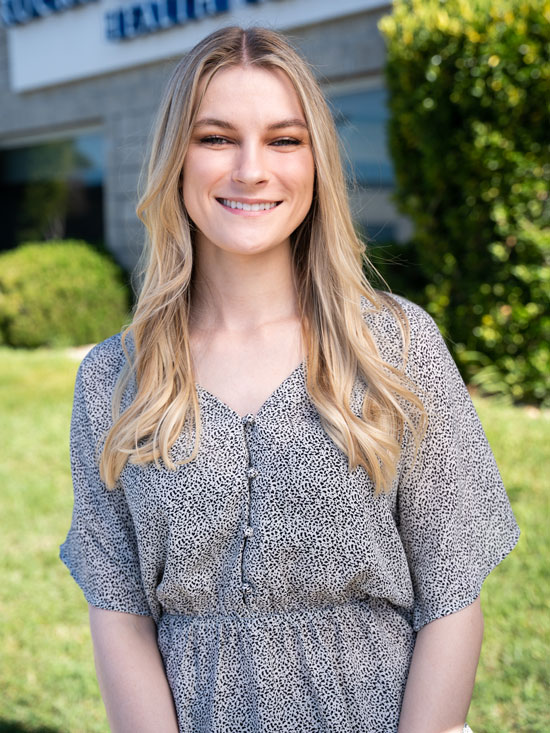Financial Aid
Higher Education Emergency Relief Fund (HEERF) 2021– General Information
Rocky Mountain University of Health Professions Statement (RMU)
d)Higher Education Emergency Relief Fund (HEERF) II:
On December 27, 2020, the Coronavirus Response Relief Supplemental Appropriations Act (CRRSAA) bill that was passed into law and signed. The CRRSAA Act is a stimulus bill that provided $23 billion for higher education institutions and students. The HEERF model was established under the CARES Act, hence it is called HEERF II.
Rocky Mountain University of Health Professions (RMUoHP) was given an allocation of $309,036, pursuant to Section 314 (a)(4). The CRRSAA requires that proprietary institutions receiving the funds under this section must use all their grant endowments to provide financial aid to students, prioritizing students who may be experiencing financial hardships of exceptional need due to the coronavirus pandemic. This grant may be used to ease students’ financial burdens related to tuition, food, housing, healthcare, mental health needs, and/or childcare.
The American Rescue Plan Act (ARP) of 2021 (or HEERF III):
On March 11, 2021, the American Rescue Plan Act (ARP) was passed into law and signed. This represents the third stream of funding appropriated in response to the coronavirus pandemic. Hence, it is labeled as HEERF III.
The ARP Act appropriated $39.6 billion, of which $396 million were appropriated for proprietary institutions as defined in section 102(b) of the HEA, to be used ONLY for emergency financial aid grants to students.
Rocky Mountain University of Health Professions (RMUoHP), which received (a)(4) funding under CRRSAA-HEERF II, was included on the ARP(a)(4) allocation table and was given an allocation of $197,311.00.
Combined allocation from HEERF II and HEERF III totaled to $506,347.00. These allocations were made available on:
- March 29, 2021 – HEERF II – $309,036.00
- July 27, 2021 – HEERF III – $197,311.00
Eligible Students:
The CRRSAA required that these emergency grants help students who are most in need. Students must meet the criteria of “exceptional financial need”, or have significant unexpected expenses such as loss of employment for themselves or a household member, reduced income, or food and housing insecurity.
Eligible students are those who were enrolled on or after March 13, 2020, the date of declaration of the national emergency due to coronavirus (85 CFR 15337), regardless of whether they completed a Free Application for Federal Student Aid (FAFSA), or are eligible for Title IV.
In awarding the emergency financial aid grants, RMU determined the selection of students based on:
- Students with exceptional need. This included those who were experiencing significant unexpected expenses, loss of employment for themselves or a household member, reduced income, or food and housing insecurity.
- Emergency costs that arose due to the coronavirus pandemic such as healthcare, mental health needs, and/or childcare.
- Cost of attendance, such as tuition, food, and housing.
The estimated number of students at RMUoHP eligible to participate and receive the HEERF emergency financial aid grants was about 2,124 students.
Eligible students may have used their HEERF financial aid grant for:
- Any component of the cost of attendance, such as tuition, food, and housing.
- Emergency costs that arose due to the coronavirus pandemic such as healthcare, mental health needs, and/or childcare.
Impact of the HEERF financial aid grant on Title IV eligibility:
The HEERF financial aid grant is not be considered as part of estimated financial assistance (EFA) (for cost of attendance purposes). Likewise, these grants are not considered taxable and are not reported on IRS Form 1098-T.
Notification to Students:
RMU notified eligible students about the availability of HEERF financial aid grants via email. This included instructions on how to apply for the grant and on how to claim it using the student’s RMUoHP Gmail account.
The HEERF financial aid grants were disbursed through direct deposit.
NOTE:
All funds from HEERF II and HEERF III (totaling $506,347.00) were disbursed to eligible students as of December 13, 2021. Please refer to the final quarter report in the above link or click here >>> 04193200_HEERF_Q42021_12312021.pdf

Federal Student Loans
Most of RMU’s graduate programs are eligible for Federal Direct Student Loans. Eligibility for federally-funded financial aid is established by the U.S. Department of Education.

Private Student Loans
Private student loans are an alternative to federal financial aid and are, therefore, NOT part of the federal student loan program. They are offered by credit unions and third-party lending institutions.

Scholarships
RMU offers internal scholarships. We recommend you apply to any for which you are eligible. Our Financial Aid Office is also available to help you search for external scholarships.

VA Benefits
We care about our veterans. Our Financial Aid Office can help you understand and connect you with any resource available to you.
Financial Aid Office Mission
The Financial Aid Office at RMU strives to provide the highest quality service to graduate and professional students in pursuit of their academic goals. We serve as the primary advocate for students and families, assisting them in securing necessary financial resources. We will utilize our expert knowledge to update our technologies, streamline processes, maintain full compliance with federal mandates, and effectively manage financial aid resources. We are committed to providing exemplary service to our students, families, the university community, and the community at large. Our philosophy is service.
Financial Aid Team

Maria Sager
Assistant Vice President, Financial Aid Services

Alex Jackson
Associate Director, Outreach and Development

Krista McEntire
Associate Director, Advising and Reporting
Advises – College of Optometry

Jeffrey Albee
Financial Aid Technical Development Specialist

Joe Coleflesh
Manager, VA Benefits, and SCO

Leslie Garcia
Manager, Financial Aid Scholarships and Grants

Josefina Sechtem
Manager, Financial Aid Regulation and Compliance

Lauren Pickering
Financial Aid Advisor Advises – College of Health Science(DMSc, MPAS, MSHS, MSATP, Nursing, PhD, Professional Counseling)

Kaila Sharo
Financial Aid Advisor Advises – College of RehabilitationScience(DPT, MS-SLP, OTD, SLPD, tDPT)
Important Information
Read about consumer information, rights and responsibilities, and student loan repayment information.
Cares Act Information 2020
What is the federal CARES Act?
How much money did RMU receive?
Why did RMU receive these funds?
Why did every school receive a different amount? What factors were considered by the Department of Education?
What direction did RMU receive in determining how to allocate the funds?
How did RMU determine where to use the funds?
Which students received CARES Act money?
All students who received this funding were federal financial aid-eligible. To be eligible for funding consideration, you needed to have:
- Been enrolled in at least 3 credits during 2020
- Completed the 2019-2020 and/or 2020-2021 FAFSA and were eligible to receive federal financial aid.
- Completed the Higher Education Emergency Relief Fund application by the deadlines of May 15th, 2022 (for the first half of the CARES Act funds) and November 4, 2020 (for the second half of the CARES Act funds).
If awarded, how were students notified and how did they receive the funds?
Note: The CARES Act funds allocated to RMU in the amount of $223,267 were fully disbursed to awardees as of December 15, 2020.
Eligible students were notified via their RMU email accounts. Awards were disbursed via direct deposit on June 5th and November 20th.
A full report of the allocation of CARES Act funds is available in the link above (“30 Day Report”).
